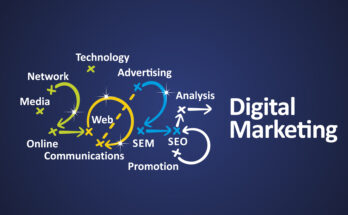The phrase “don’t believe everything you hear” is crucial in small business marketing, as false beliefs can negatively impact the bottom line. Myths about marketing are like ghosts, hindering SMBs from reaching their full potential. Effective marketing strategies are essential in today’s business environment.
This article debunks five common marketing myths for small and medium-sized businesses, including the belief that SEO and social media are out of reach and that social media is exclusively for business-to-consumer companies. It aims to dispel these misconceptions and promote effective marketing strategies for small businesses.
1. SMBs ought to concentrate on conventional marketing strategies
Traditional marketing strategies like print advertising and direct mail are often misunderstood for small business marketing. However, modern consumers prefer online platforms for product research and purchase decisions, with 74% actively searching for social proof to inform their purchasing decisions, highlighting the need for innovative marketing strategies.
Small and medium-sized enterprises (SMEs) need SEO, but not as much as large corporations. They often see faster results due to less competition in the local market. To start, focus on keyword optimization, content creation, and backlink creation. Local SEO increases visibility in search results and client numbers. Mobile-friendly websites and social media profiles can also improve online visibility. Digital marketing strategies like PPC advertising, email marketing, and content marketing can also benefit SMEs.
2. Only B2C companies should use social media marketing
Social media marketing is not limited to business-to-consumer companies; businesses of all sizes can utilize it to market their products, interact with consumers, increase visibility, showcase expertise, and find new prospects.
LinkedIn is a valuable platform for business-to-business companies to network with experts and gain market recognition. Social media platforms like Twitter and Facebook offer additional opportunities to connect with potential clients. Social media marketing is an effective strategy for small businesses, allowing them to expand operations, strengthen brands, and connect with target markets, regardless of their B2B or B2C nature.
3. Email marketing is no longer relevant
Email marketing is still an effective and cost-effective way for small and medium-sized businesses (SMBs) to reach their target audience. A Campaign Monitor study found an average return on investment of $42 for every dollar invested. With the right approach, SMBs can promote their products and services to subscribers.
Email marketing is a powerful tool for small and medium-sized businesses (SMBs) to enhance customer relationships and boost brand loyalty. Automation and segmentation have allowed for personalized messages, while segmentation allows for targeted communication to specific audience subsets. Despite its potential, email marketing remains an efficient and effective communication tool for generating revenue and enhancing client relationships.
4. SEO takes too much time and money
Small and medium-sized businesses often avoid SEO due to perceived time and cost. However, efficient SEO strategies, such as keyword optimization, link building, and improving Google My Business pages, can deliver results without breaking the bank and are affordable for these businesses.
SEO efforts can significantly boost revenue for small and medium-sized businesses by achieving high rankings in search engine results pages (SERPs) for keywords related to their products and services. Although it may take several months to see results, with dedication and hard work, businesses can expand and improve their search results rankings.
5. The sole goal of small business marketing is to produce leads and sales
Small business marketing should go beyond just driving website traffic and sales. It can boost brand recognition, enhance credibility, and foster consumer loyalty. By utilizing content marketing, social media, and thought leadership, SMBs can become market leaders and reliable resources for their clients.
Marketing helps small businesses understand their customers and better meet their needs by collecting data and insights through various channels. Expanding marketing knowledge beyond lead generation and sales can increase visibility, boost reputation, and strengthen customer relationships. A comprehensive marketing strategy can help businesses succeed and expand.
Conclusion
The myths about small business marketing are being dispelled, revealing that marketing is not just about attracting new customers but also involves a systematic approach to increase brand recognition, credibility, and customer loyalty. By dispelling these myths, small and medium-sized enterprises can improve their marketing efforts and achieve success in the competitive world of small business marketing.



